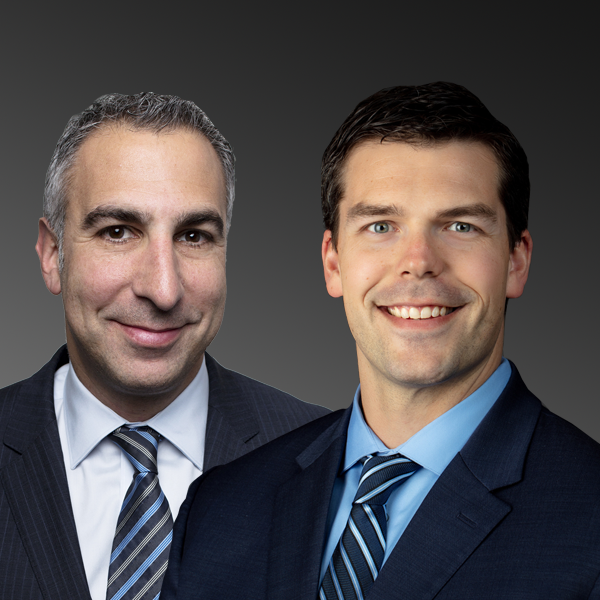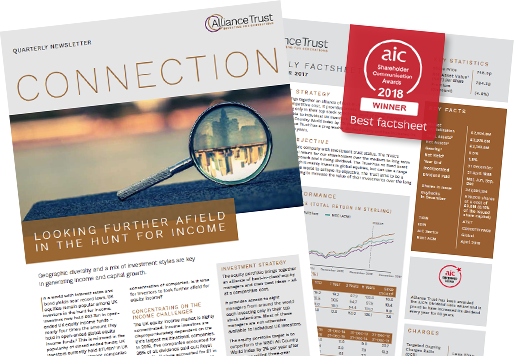Getting value from volatility
Escalating trade tensions, monetary policy normalisation, uncertainties about Brexit. The result – heightened volatility and alarm. Things reached a head last month with a global equity market sell-off. The S&P 500 sank by nearly 7% over the period, its worst monthly performance since September 2011, while many markets in Europe and Asia fared even worse.
However, far from being concerned about a looming slowdown in worldwide growth, at an investor forum held this month with four of Alliance Trust’s equity managers, the case was made for why the ongoing turbulence could give rise to some serious investment opportunities.
With the Fed poised for further rate rises and this month’s midterms threatening Trump’s fiscal policies, George Fraise, manager of Alliance Trust’s high-quality global growth mandate, says the US is by no means out of the woods yet. Likewise, with broader monetary policy normalisation and Emerging Markets (EM) currency turmoil adding further pressure beyond the US, the Sustainable Growth Advisers’ manager argues that a selective investment approach is now crucial.
“The market had been quite complacent for a long time, and you didn’t have to be very selective to generate good returns. I believe that is going to change. Monetary policy around the world is moving from accommodative to neutral, and other uncertainties exist that are likely to see volatility continue. As we run a highly concentrated portfolio, this should really play in our favour,” says Fraise.
Despite this, he sees the volatility presenting an opportunity to step in and take advantage of pricing dislocations, with the high-quality names he invests in tending to outperform during these periods. “To make the most of this, selectivity is going to have to be a lot tighter to generate better returns on an ongoing basis. As we run a highly concentrated portfolio, this should really play in our favour,” he adds.
Sinking FAANGs
Some of the most notable casualties last month were the mega-cap tech names that – up to this point – had been almost solely responsible for the S&P 500’s 2018 gains. Indeed, of the so-called FAANGs – Facebook, Amazon, Apple Netflix and Google (parent company Alphabet) – both Amazon and Netflix lost about a fifth of their value over the period, while the tech-heavy Nasdaq dropped by 9%.
After years of passive money exacerbating the strong performance of these mega caps, First Pacific Advisors’ Greg Herr says ongoing volatility is triggering a major reversal of fund inflows as sentiment darkens. Herr, who manages Alliance Trust’s long-term value mandate, says this can favour value managers targeting discounted stocks.
“When these stocks become the biggest positions in an index, huge amounts of passive capital flow in, artificially pushing prices up further. In extended periods of volatility, you are likely to see these flows reverse. We have built portfolios that only have a little exposure to these mega caps and are generally diversified into other areas. When these passive funds reallocate this money, it should benefit our performance,” he says.
GQG Partners’ Rajiv Jain, who runs Alliance Trust’s global high-quality mandate, warns that volatility alone cannot be used to predict the outperformance of value over growth, with numerous additional factors at play.
“There is a lot of disruption across many industries, and a lot of value names have been hit. This makes me ask, how much underperformance is coming from disruption and how much is coming from the whole value cycle? There is a broad consensus that this is the tail-end of the cycle, and cyclical names tend to get hurt more at the end of the cycle because people expect the earnings to roll over,” says Jain. “So, I think it is a little bit more nuanced in terms of which areas have been actually disrupted and which have been de-rated because of the expectation of a cyclical downturn, not a fundamental downgrade.”
Predicting the unpredictable
Echoing this, US equity manager Andrew Wellington of Lyrical Asset Management, who runs the fundamental value (value investing combined with quality, based on deep analysis) mandate at Alliance Trust, says that while volatility can create significant investment opportunities, it is impossible, and nigh on pointless, to forecast. He cites last year as the second least volatile year for US markets over the last century, despite following the election of a controversial president. Meanwhile, the least volatile 12-month period was 1964, a year after the assassination of President John F Kennedy, another highly volatile event.
“Even if the most volatile news comes out, you can end up being seriously wrong-footed by your expectations of how the market will perform and how it actually ends up performing,” says Wellington. “The truth of it is that investors just need to be prepared for volatility in the equity market and be ready to make the most of it when it arises.”








